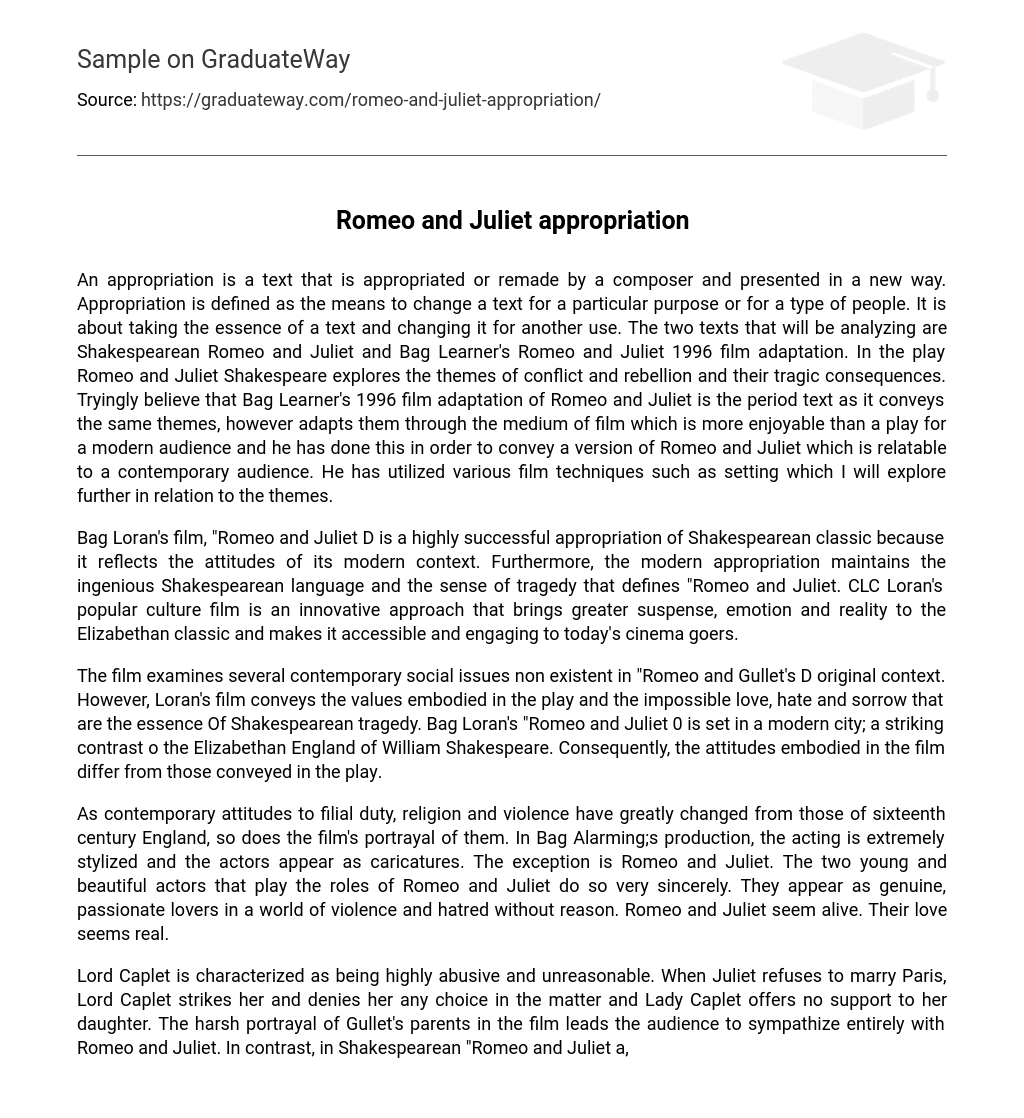An appropriation is when a composer takes a text and transforms it for a specific purpose or audience. It involves capturing the essence of the original text and changing it for a different use. This analysis focuses on two texts: Shakespeare’s Romeo and Juliet and Bag Learner’s 1996 film adaptation of Romeo and Juliet. In the play, Shakespeare explores the themes of conflict and rebellion and their tragic consequences. In contrast, Learner’s film adaptation conveys the same themes but in a format that is more engaging for modern viewers – the medium of film. By doing this, Learner aims to make Romeo and Juliet more relatable to contemporary audiences. He employs various film techniques, one of which is setting, which will be further explored in relation to these themes.
Bag Loran’s film, “Romeo and Juliet D”, is a successful adaptation of Shakespeare’s classic as it captures the contemporary attitudes. Additionally, this modern version preserves the clever Shakespearean language and the tragic essence of “Romeo and Juliet”. CLC Loran’s film, which belongs to popular culture, presents an inventive method that enhances the suspense, emotions, and realism of the Elizabethan play, making it relatable and captivating for contemporary cinema audiences.
The movie explores various present-day societal problems that were not present in the original context of “Romeo and Juliet.” Nevertheless, Loran’s film manages to portray the values encapsulated in the play and the unattainable love, hatred, and sorrow that define Shakespearean tragedy. Loran’s adaptation of “Romeo and Juliet” is set in a contemporary urban setting, which starkly contrasts with the Elizabethan England of Shakespeare. As a result, the attitudes depicted in the film differ from those portrayed in the play.
As contemporary attitudes towards filial duty, religion and violence in sixteenth century England have greatly evolved, the film depicts these changes as well. In Bag Alarming’s production, the acting is highly stylized and the actors are portrayed as caricatures, with the exception of Romeo and Juliet. The two actors who portray Romeo and Juliet are young and beautiful, and their performances are sincere. They truly embody the characters of passionate lovers in a world filled with senseless violence and hatred. Romeo and Juliet come across as vibrant and their love appears authentic.
The characterization of Lord Caplet is that of a highly abusive and unreasonable individual. When Juliet rejects Paris’ marriage proposal, Lord Caplet physically assaults her and refuses to allow her any autonomy in the decision-making process. Lady Caplet, on the other hand, offers no support to her daughter. The portrayal of Juliet’s parents in the film evokes sympathy from the audience towards Romeo and Juliet. In contrast, in Shakespeare’s “Romeo and Juliet,” the opposite is true, and Romeo and Juliet would have been perceived as defiant towards their parents. The film takes on a modern perspective on filial duty through its stylized depiction of these events.





